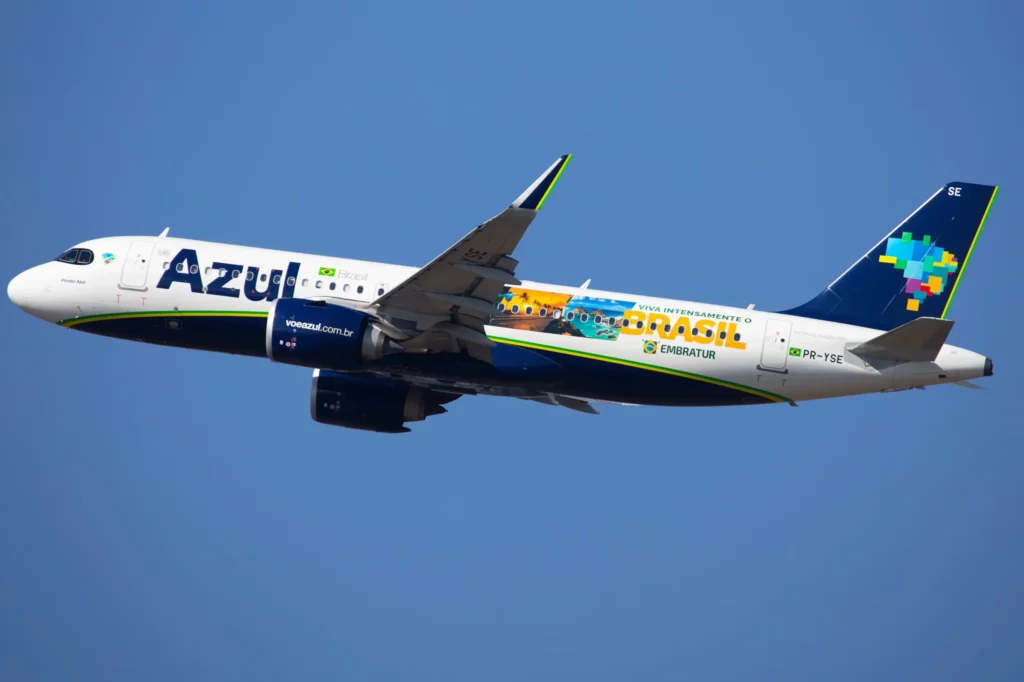BlackRock Reduces Stake in Azul Amid Financial Turbulence: A Deep Dive into the Reasons and Implications
In a noteworthy move, BlackRock, the world’s foremost asset manager, has recently trimmed its stake in Azul (https://www.voeazul.com.br/en/home), a well-recognized Brazilian airline. Representing its clients, BlackRock sold shares, subsequently bringing its ownership to about 4.716% of Azul’s preferred stock. This adjustment means that BlackRock now holds 15,836,528 preferred shares, which includes direct shares and equivalent shares represented through American Depositary Receipts (ADRs).
Additionally, BlackRock retains 590,354 financial derivatives associated with these shares. Despite this reduction, BlackRock maintains that its interest in Azul is strictly for investment purposes, with no intentions of influencing the airline’s control or management structure.
Mounting Pressures on Azul
The decision comes at a time when Azul’s stock has been exceptionally volatile. The airline has been grappling with a weakening Brazilian Real and mounting concerns about its debt levels. The situation escalated after a Bloomberg News report suggested that Azul was contemplating several strategies to manage its debt obligations. These strategies ranged from issuing new stock to the more drastic measure of filing for bankruptcy protection.
However, Azul quickly responded, asserting that the report had been misinterpreted. Despite its assurances, the airline’s stock plunged by over 30% prior to the recent announcement from BlackRock. Clearly, these challenges have put the airline in the spotlight, questioning its financial stability and long-term viability.
Leadership Reassures Stakeholders
Amidst the swirling concerns, Azul’s CEO, John Rodgerson, aimed to reassure stakeholders that the airline remains financially stable. He also highlighted that Azul continues to receive new aircraft and has no intentions of filing for bankruptcy protection. Despite Rodgerson’s reassurances, the situation remains precarious. Earlier this week, S&P Global Ratings downgraded Azul’s global rating to “CCC+,” a rating that underscores significant financial vulnerability.
Implications and Broader Context
This series of events is indicative of the tightrope that companies like Azul must walk in steering through economic fluctuations while keeping investor confidence intact. The actions by a major investor like BlackRock are not just reflective of isolated corporate strategy but also illuminate broader industry trends and regional economic challenges.
The unfolding dynamics between institutional investors like BlackRock and financially stressed companies such as Azul bring to light the vulnerabilities within the airline industry, particularly in economically volatile regions like Brazil. Asset managers are increasingly cautious, balancing investment opportunities with the financial stability of the companies within their portfolios.
As the global travel industry gradually recovers from the impacts of the COVID-19 pandemic, companies in emerging economies face amplified risks due to currency weaknesses, high debt levels, and economic instability.
Conclusion
While BlackRock’s reduction in its stake in Azul marks a significant shift, it remains invested in the airline. This move underscores a broader narrative of the challenges facing the airline industry and the delicate balance of maintaining financial health and investor trust. Stakeholders and potential investors will be closely watching the developments within Azul as it navigates through these turbulent times.
For more information, you can visit Azul’s official website.
